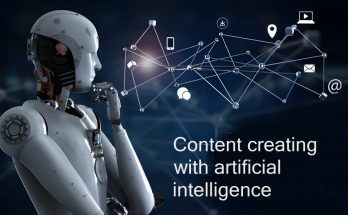Philosophers love distinctions. There are many more distinctions we can make. We can distinguish between temporary and permanent simulations (like ‘do people enter the simulation for a short time or do they spend their whole lives there’); perfect and imperfect simulations (like ‘are we simulating faithfully to all the laws of physics, or do we allow different approaches and exceptions’
We can also create pre-programmed and open-ended simulations (such as ‘is it a single pre-programmed event stream, or are various things happening depending on initial conditions and what sims choose’). You can probably think of other distinctions, but we already have enough material to continue the discussion.
Can you prove that you are not in a simulation? You may think you have conclusive proof that you are not. However, I think this is not possible; for such proof can also be simulated.
Maybe you think that the sprawling forest around you proves that the world you live in is not a simulation. In principle, however, the forest can be simulated down to every detail, and every bit of light from the forest that reaches your eyes can also be simulated. Your brain responds to this as it would in the non-simulated, ordinary world; if that’s the case, a simulated forest looks exactly like an ordinary forest to you. So can you really prove that you haven’t seen a simulated forest?
Or maybe you think your beloved cat cannot be simulated in any way. In contrast, cats are biological systems, and it seems likely that biological mechanisms could be mimicked. With good enough technology, your cat’s simulation can become indistinguishable from the original. Are you really sure that your cat is not a simulation?
Or you think that the creative or caring behavior of the people around you cannot be simulated in any way. But what applies to cats also applies to humans. Human biology can be imitated quite nicely. The human brain creates human behavior, and the brain looks like a complex machine. Are you really sure that a holistic simulation of the brain cannot reproduce all these behaviors in detail?
Maybe you think your own body can never be simulated. You feel hunger and pain, you move, you touch things with your hands, you eat and drink, you are instinctively aware of your own weight in a seemingly real way. However, your body, which is biological systems, can be simulated. If your body is simulated well enough to send exactly the same signals to your brain, your brain won’t be able to sense the difference.
Or you think your consciousness can never be imitated. After all, you have a personal experience of the world from a first-person perspective: you experience colors, pain, ideas, memories. You think it’s important that you exist. You say, ‘A simple brain simulation would not experience this consciousness’.
What about consciousness?
The issue of consciousness and whether a simulation can have it is a more difficult question than any other. For the moment, we can set aside the issue of consciousness by concentrating on impure simulations, that is, Matrix-like simulations, where you are a simulation-bound biosim. The biomes themselves are not simulated. They probably have ordinary biological brains that are predicted to be conscious like us. Whether you’re an ordinary person or a biome with the same brain, what’s going on will look and feel the same to you. If this is the case, we can never prove that we are not living in a simulation.
But can we prove the opposite, that we are in a simulation? In The Matrix, Neo realizes that he is living in a simulation when he takes the red pill and wakes up in a different reality. He shouldn’t have been so sure.
However, we can certainly find very strong evidence that we are living in a simulation. Simulators can lift the Sydney Harbor Bridge into the air and turn it upside down. They can show us the source code of the simulation. They can show us personal time periods from our past and the simulation technology that created them. In the next reality, they can show me a movie that reveals that some wires are attached to my brain, along with a reading of my thoughts and feelings accompanying it. They can put me in control of the simulation so I can move mountains around me with just a few button presses.
This proof alone lags behind conclusive proof that we are living in a simulation. Perhaps the world we live in is an un-simulated magic world, like the world of Harry Potter, where all powerful wizards use their powers to convince us that we are living in a simulation. Maybe most of my life has not been simulated but the simulators temporarily put me in a simulated copy to fool me. Or I’m having a hallucination because of the drugs given. Regardless, if I had such evidence, I’d probably be convinced that I’m living in a simulation.
Views: 207



